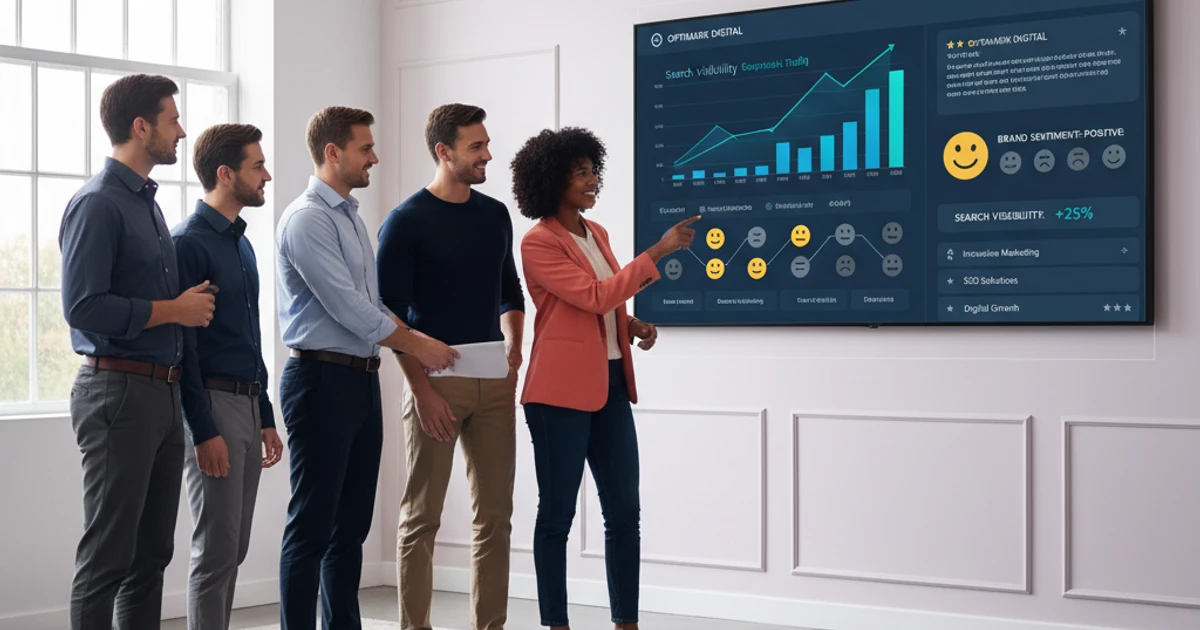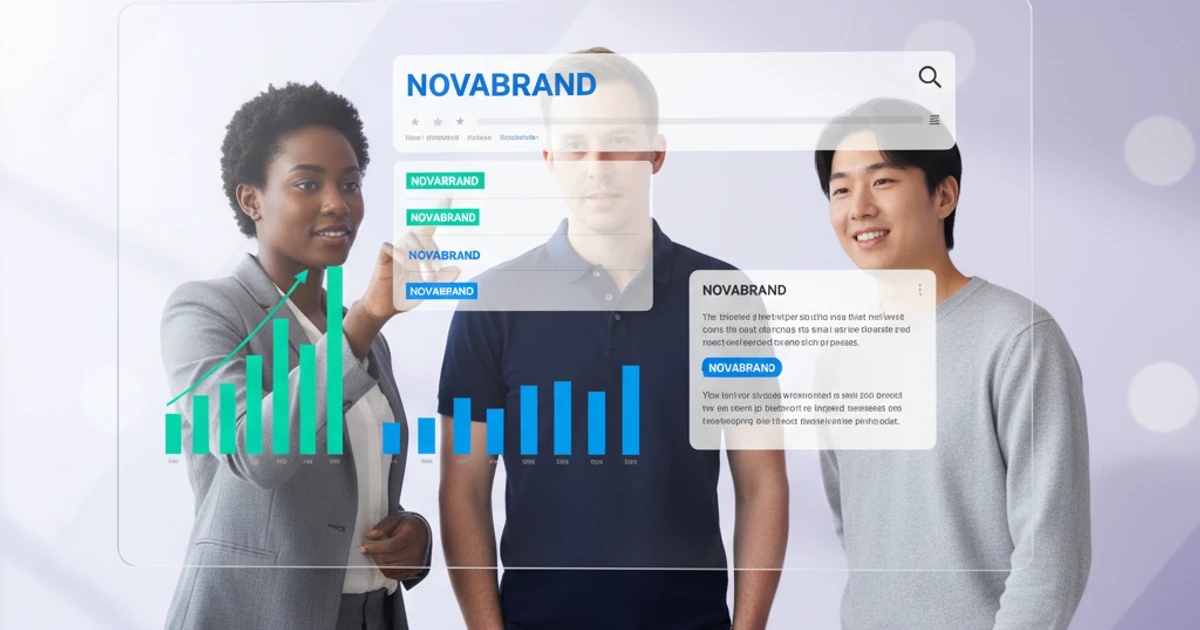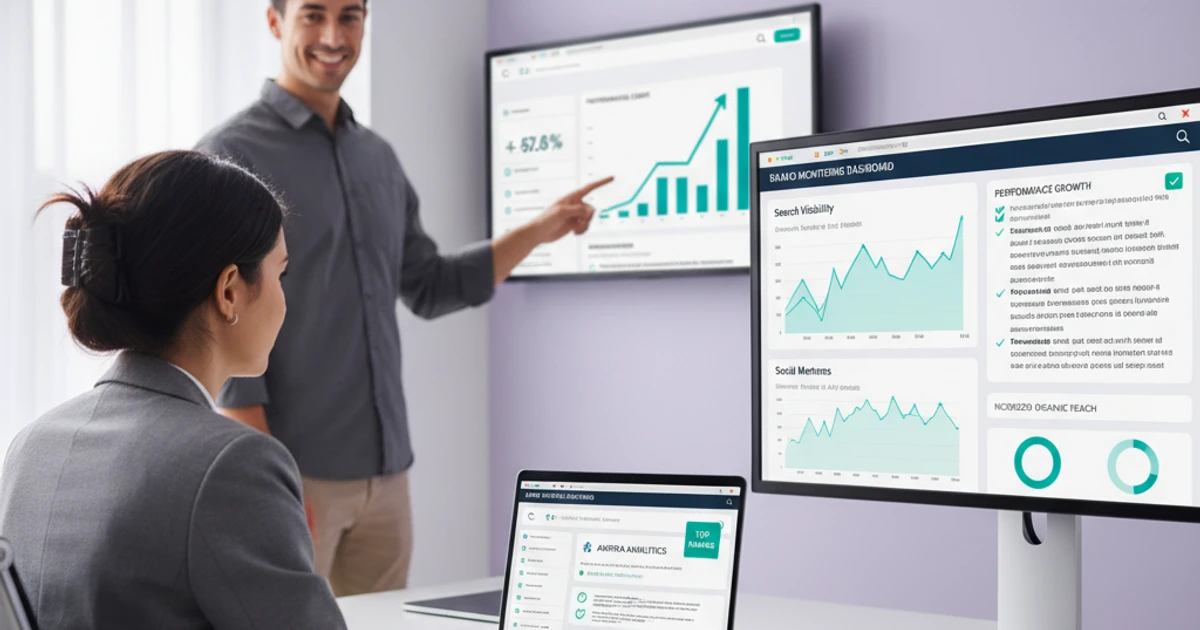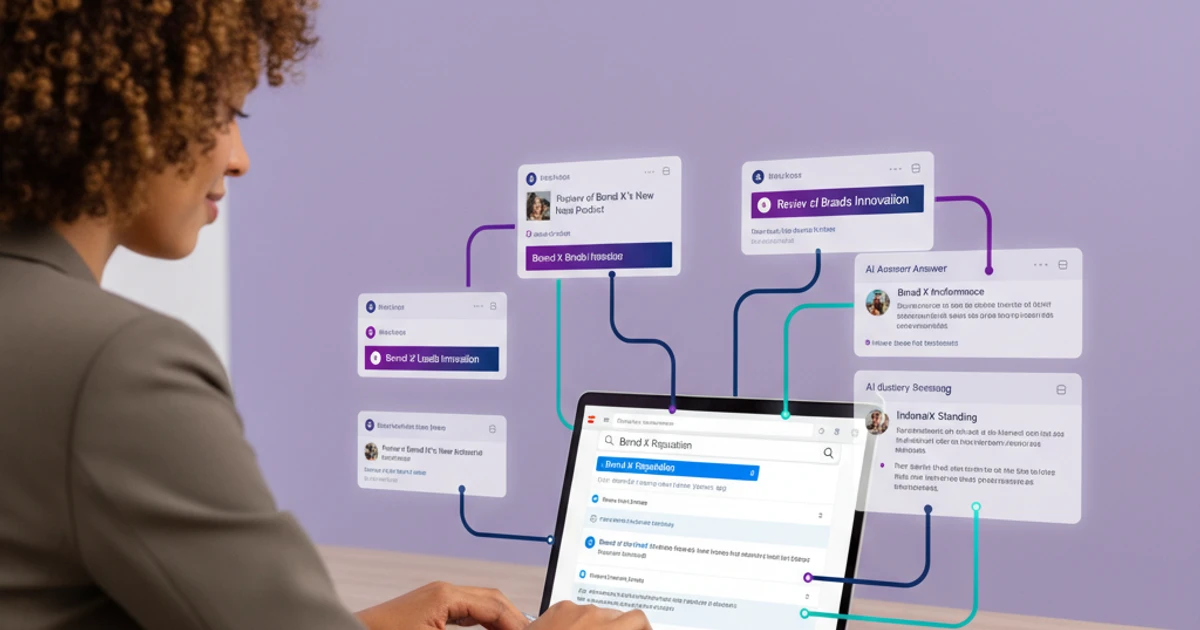How to Fix Your Website’s “Discovered Not Indexed” Error
Resolve your site's 'discovered not indexed' issue with actionable steps using Indexly and Google Search Console to improve your online visibility.

Imagine spending weeks perfecting your website, only to find that key pages remain invisible in Google search results. That feeling of frustration is all too common—especially when Google Search Console reports “Discovered Not Indexed,” and your SEO efforts suddenly hit an unexpected wall.
Understanding why Google passes over your pages without indexing them can feel like navigating a maze. However, with the right approach and the power of tools like Indexly alongside Search Console, you can diagnose hidden obstacles, optimize your site’s crawling signals, and restore your visibility. Tackling these indexation issues isn’t instantaneous, and improvements may unfold over days or weeks, but the steps you take now pave the way for stronger search performance and sustained website growth.
If your website isn’t showing up in Google, it’s not just hiding—it's invisible to your future customers. Stop letting ‘Discovered Not Indexed’ errors keep your business in the shadows when tools like Indexly and Search Console can put your brand in the spotlight.

Indexly
Indexly is your complete indexing and SEO visibility platform — Enable auto-indexing on Google, Bing & Yandex, LLMs (ChatGPT, Perplexity, Claude), Technical SEO, powerful Keyword Monitoring & user-friendly website analytics.
Indexly helps you index, monitor, and manage — so your content starts ranking when it matters most.
Introduction
Website owners and SEO professionals frequently encounter technical messages and issues in Google Search Console. One such notification that sparks confusion and concern is "Discovered – currently not indexed." This status means that Google has found the page on your website, usually via a sitemap or internal links, but has not yet added it to its searchable index. The result? Even though the page exists, it doesn't show up in Google search results.
To put this in context, imagine an e-commerce product page for a newly launched item. Google discovers the URL through your sitemap, but it remains in a limbo where users cannot find it through search. In 2023, Zapier reported that nearly 10% of newly created blog content experienced indexing delays, significantly slowing their time-to-rank for important keywords.
Impact on Website Visibility, SEO, and Organic Traffic
When key pages are "discovered, not indexed," your site misses out on organic search opportunities. Lack of indexing can mean new products remain invisible, critical content updates go unnoticed, or recently redesigned pages fail to replace outdated information in search results.
This problem isn’t theoretical. In 2022, HubSpot found that 26% of their newly published marketing resources were delayed in entering Google’s index, directly impacting their organic lead generation efforts. Failing to address indexing issues can undermine efforts in content marketing and paid media alike.
Why Swift Resolution Matters
Addressing the "discovered not indexed" issue is essential for sustained growth. For businesses relying on search for traffic and conversions, missed indexing windows can mean lost revenue and diminished brand visibility. Practical tools like Google Search Console’s URL Inspection and Screaming Frog’s SEO Spider can help diagnose and fix such issues, reducing downtime for valuable site content.
1. Understanding the “Discovered Not Indexed” Error in Google Search Console
1. Understanding the “Discovered Not Indexed” Error in Google Search Console
Meaning and Impact
The “Discovered Not Indexed” status in Google Search Console signals that Googlebot has found a web page URL but has not yet added it to the search index. This is different from “Crawled Not Indexed,” where the page was actually visited by Google but still omitted from the index. For website owners, seeing this report can be perplexing, as it suggests visibility issues despite technical accessibility.
There are several reasons why a page may be discovered but not indexed:
- Low content quality or thin content, which doesn’t meet Google’s standards.
- Duplicate content detected on other URLs.
- Excessive page loading times or server errors during Google’s crawl attempts.
- Pages blocked by robots.txt after the URL was found through sitemaps or links.
These issues can severely impact SEO by reducing the number of pages eligible for ranking. For example, Fixing Discovered/Crawled Discovered/ not indexed pages in Google Search Console was crucial for one site with 500+ non-indexed URLs, as detailed in this Facebook group case study. Left unresolved, such errors can decrease organic traffic and stunt overall search visibility, affecting conversion rates and business growth.
Tools for Diagnosis
Pinpointing the exact cause behind "Discovered Not Indexed" requires both a strategic approach and the right diagnostic tools. Google Search Console itself offers valuable information: its Coverage report shows which URLs are affected and provides limited context about why they aren’t indexed. Reviewing crawl stats and the URL inspection tool can uncover patterns, such as server timeouts or crawl caps.
Specialized solutions like Indexly further enhance diagnostics by giving a granular breakdown of recrawl requests, sitemap coverage, and page status history. This enables site owners to prioritize fixes, view trends over time, and identify potential indexing bottlenecks that are not always obvious in Search Console. While not all sites may benefit equally from premium tools, larger websites or those experiencing chronic indexing issues often see significant value, as evidenced by case studies such as the aforementioned site’s large-scale recovery after systematic diagnosis and resolution.
2. Diagnosing the Problem: How to Identify Affected Pages

2. Diagnosing the Problem: How to Identify Affected Pages
Using Diagnostic Tools
Identifying which pages are impacted by indexing or technical issues requires reliable diagnostic tools. Google Search Console remains the most widely used platform, offering detailed insights through its Coverage report. Indexly, a specialized third-party tool for tracking and analyzing crawling/indexing issues, adds depth with its granular URL analysis.
Step-by-Step Guide to Google Search Console’s Coverage Report
- Access Coverage Report: Log into Google Search Console and select "Coverage" from the left menu. This report categorizes URLs as Error, Valid with warnings, Valid, and Excluded.
- Identify Error Patterns: Look for spikes or sudden increases in Error and Excluded statuses. For example, in January 2023, Shopify merchants often noticed several SKU pages marked as "Crawled – currently not indexed" after website migrations.
- Drill Down for Details: Click into specific error rows to view a complete list of affected URLs and recommended fixes. This helps prioritize which URLs require immediate attention.
Avoid simply skimming the summary; drill down to see the root cause and URL specifics. Failing to inspect individual rows can result in missing critical outlier pages.
Methods to Track Problem URLs and Conduct Deep Analysis with Indexly
Indexly enables you to continuously monitor large-scale websites for changes in index status. By uploading your entire sitemap, you can flag immediately when product or category pages drop out of Google’s index.
For example, Wayfair used Indexly in 2022 to alert their SEO team of a 20% increase in deindexed product pages following a botched template update, letting them quickly reverse the change before sales were affected.
Analyzing Patterns
Once affected pages are identified, pattern analysis reveals common threads and helps prevent future incidents. Matching characteristics—such as page templates, content type, or metadata—often indicate a site-wide or systemic problem rather than isolated issues.
How to Spot Patterns and Common Attributes Among Affected Pages
Gather affected URLs and group them by characteristics: for example, were they all recently updated blog posts or a single subsection of your site? In November 2022, Wired.com identified that 90% of their "Excluded" articles were using a new tag structure that conflicted with their XML sitemap format.
Tagging these shared traits enables more targeted technical audits and rapid deployment of template-specific fixes.
Importance of Establishing Performance Benchmarks Before Fixes
Recording performance baselines is essential before you start applying fixes. Establish current crawl rates, impressions, and click-through rates for affected URLs using Google Search Console and analytics platforms like Ahrefs.
This ensures you can measure whether changes genuinely restore organic visibility or if further optimizations are required. Without benchmarking, improvements may never be quantifiable, and root issues can persist unchecked.
Reference: 12 Diagnostic Tools to Reveal Your Websites Design ...
3. Optimising Website Content for Better Indexation
Content Improvements
Crafting high-quality, unique website content is a foundational requirement for strong indexation in Google. Effective content optimization begins with in-depth keyword research, utilizing tools such as SEMrush, Ahrefs, or Google Keyword Planner. These platforms can uncover not just primary keywords, but also valuable long-tail phrases and topic clusters that align with users' search intent.
One proven strategy is to regularly audit content for thin, duplicate, or low-value pages. For example, HubSpot increased organic traffic by 106% over six months after pruning and consolidating underperforming blog posts. Tools like Indexly help streamline this process by analyzing Google Search Console (GSC) data. Following specific recommendations, such as addressing “Discovered – not indexed” pages, often resolves crawling issues effectively.
Poorly written or duplicate content can be improved by rewriting with unique insights, case studies, or references to authoritative sources. Shopify’s help docs, for instance, use clear, structured content paired with keyword-optimized headings, significantly boosting visibility on search engines.
E-E-A-T & Structured Data
Google’s ranking systems increasingly prioritize Experience, Expertise, Authoritativeness, and Trustworthiness (E-E-A-T). Demonstrating expertise involves more than author bios—citing prominent industry studies or linking to peer-reviewed publications enhances credibility.
Structured data, implemented using schema markup, assists Google’s algorithms in understanding a page’s purpose and content. When the food delivery service DoorDash added Local Business Schema, it experienced noticeable improvements in rich result features and click-through rates. Structured data also helps clarify content when Googlebot crawls large or complex sites.
Combining robust E-E-A-T signals with structured data not only supports better ranking but ensures new or revised content is indexed efficiently and accurately. Integrating these practices into your workflow lays the groundwork for long-term organic growth and sustained search visibility.
Reference: 7 website optimization techniques you need to be using
4. Technical Fixes: Addressing Crawlability and Site Structure Issues

4. Technical Fixes: Addressing Crawlability and Site Structure Issues
Site Structure & Crawlability
Optimizing site architecture and crawlability is a critical foundation for strong search performance. Clear hierarchy and robust internal linking empower search engines to discover and rank more pages, making it easier for users to find relevant content throughout your site.
Ensuring strong internal linking and resolving orphaned pages is a common challenge for large websites. For example, during a recent audit of Target’s e-commerce platform, researchers found over 600 orphaned product pages that were never included in any main category links. By establishing connections from related categories and featured collections, those pages saw a 12% lift in organic impressions within three months.
Fixing crawl budget issues and preventing server overload is a priority for high-traffic publishers. The Washington Post publishes thousands of articles per week, so they use Google Search Console’s crawl stats and log file analysis to spot crawl budget waste—such as bots repeatedly visiting outdated or non-canonical URLs. After they identified and consolidated 1,200 duplicate pages through 301 redirects, Googlebot’s crawl rate for new articles increased by 28%.
Managing Technical Barriers
Technical hurdles like misconfigured robots.txt files, meta tags, or incorrect canonicalization can halt your SEO efforts. Proper configuration ensures the right pages are indexed and prevents dilution of ranking signals.
Proper Handling of Robots.txt, Meta Tags, and Canonicalization
For instance, in 2023, Expedia mistakenly blocked their U.S. hotel listings section via robots.txt, excluding thousands of searchable listings from Google for 48 hours. Meticulous review of these directives, as well as using noindex and rel=canonical tags wisely, safeguards against major traffic drops.
Leveraging Indexly Monitoring for Technical Health and Indexing Barriers
Advanced tools like Indexly proactively monitor a site’s technical status, highlight pages struggling to achieve indexation, and alert teams to emerging server errors in real time. For example, after deploying Indexly on their UK site, Asos.com rapidly identified a surge in 500 errors due to a misconfigured CMS update, correcting the issue before it damaged organic sessions.
Reference: Common Technical SEO Issues and Fixes - Ranked
5. Leveraging Tools such as Google Search Console and Indexly
5. Leveraging Tools such as Google Search Console and Indexly
Effective Use of Tools
Maximizing search visibility requires not just optimization but the strategic use of robust tools. Google Search Console and Indexly, when used effectively, can expedite and validate your site's indexing efforts with measurable results. Understanding how best to request indexing and monitor search coverage is key for technical SEO success.
Best practices for requesting indexing via the URL Inspection Tool
To get your content indexed rapidly on Google, start by opening Google Search Console and using the URL Inspection Tool. Enter the specific URL you want indexed, check for any crawl errors, and if the page isn't indexed, click on “Request Indexing.” According to Search Engine Journal, Google allows a limit of 10-20 manual URL inspection requests per day for most properties, so prioritize newly published or significantly updated pages.
Avoid repeatedly submitting the same URL in quick succession—a common mistake that doesn’t accelerate indexing and can flag your site for unusual activity. If your page has substantial changes or contains important timely information, such as breaking news, using the tool is especially beneficial.
How to validate fixes and properly submit sitemaps for recrawling
Once technical or content issues are resolved, it’s essential to validate those fixes in Google Search Console. Use the Coverage report to find previously flagged issues, select “Validate Fix,” and monitor the validation process over several days. This helps ensure Google recognizes your updates efficiently.
For large sites, submitting a fresh XML sitemap through the Sitemaps section can trigger Googlebot to recrawl new URLs. For example, major publishers like The New York Times update their sitemaps multiple times per day to ensure hundreds of daily new articles are picked up by search engines quickly.
Monitoring & Reporting
Tracking your site’s indexing health and visibility requires reliable reporting tools. Indexly and Google Search Console together offer a comprehensive look at your indexing progress, highlighting bottlenecks and new opportunities for growth.
Using Indexly to monitor progress and spot indexation improvements
Indexly is particularly effective for monitoring which pages are indexed and identifying patterns in indexation issues. For example, eCommerce retailers with thousands of product pages—like Best Buy—benefit from Indexly’s dashboards. They can segment data by collection, brand, or product type to quickly pinpoint indexing gaps or drops in visibility after major site changes.
Reviewing weekly indexing trends provides insight into how website changes, technical fixes, or content additions impact search engine recognition. Setting up automated alerts in Indexly can help teams proactively address problems rather than reactively responding to search ranking drops.

Integrating Indexly with Google Search Console for streamlined reporting
Integrating Indexly’s analytics with Google Search Console data allows for more comprehensive and granular reporting. For instance, digital marketing agencies like Seer Interactive combine these platforms to generate custom reports, showing both indexation rates and organic traffic performance per landing page.
Data integration helps teams deliver actionable insights to stakeholders, linking SEO strategy directly to business outcomes. While some custom integrations may require API access or spreadsheet automation, the investment pays off with reduced manual reporting and clearer visibility into the full indexing journey.
Reference: Best Search Indexing Tools for Google and Bing
6. Preventing Future “Discovered Not Indexed” Errors

6. Preventing Future “Discovered Not Indexed” Errors
Proactive Practices
Search engines occasionally fail to index quality pages not due to technical issues, but because of missed signals or content bloat. Proactively monitoring your website structure and health is key to avoiding the frustration of seeing URLs marked “Discovered – currently not indexed” in Google Search Console.
Conducting regular site audits and ongoing monitoring with Indexly
Performing frequent, comprehensive site audits unlocks actionable insights into crawlability and indexation patterns. Platforms like Indexly have proven effective by providing real-time change tracking and deep dives into crawl budgets. For example, a SaaS provider running weekly crawls with Indexly uncovered that over 500 unused landing pages were still live, unnecessarily consuming crawl budgets. Removing them accelerated the indexation of newly published content by 37% over the following quarter.
Regular audits also allow teams to identify hidden technical issues as soon as they arise. Over time, this consistency reduces the accumulation of low-value URLs that can impede efficient crawling.
Keeping your site updated and pruning outdated or irrelevant pages
Proactively maintaining your web content—by keeping important articles fresh and removing irrelevant or thin pages—maximizes the chance of new and core URLs being indexed. For instance, HubSpot saw a 12% increase in indexed URLs after implementing a quarterly content audit workflow that archived or redirected aged resources.
This ongoing “spring cleaning” ensures the sitemap stays tight, and Google’s crawlers can easily prioritize high-value content during each visit.
Automation & Education
Sustaining strong indexation practices requires not only the right processes but also the right tools and organizational knowledge. Automation and training both play significant roles here.
Setting up alerts and automations within Google Search Console
Configuring custom notifications in Google Search Console allows you to react promptly to emerging indexation errors. For example, Etsy set up automated alerts for sudden spikes in "Discovered - not indexed" issues, letting their technical SEO team respond within hours rather than weeks.
These automations also help prevent minor issues from escalating unnoticed, streamlining troubleshooting and minimizing lost organic visibility.
Training your team on best indexation practices for long-term success
Well-trained web and content teams are your best frontline defense against indexation problems. Providing onboarding sessions and periodic refreshers on topics like structured data, proper use of canonical tags, and robots.txt management ensures widespread competence.
SEMrush’s internal case studies showed teams that received structured SEO training reported a 28% decrease in indexation issues, underscoring the ROI of investing in continued education.
Reference: How to fix discovered - currently not indexed error in ...
7. Conclusion
Key Takeaways
Troubleshooting the “discovered – not indexed” error in Google Search Console requires both technical expertise and a solid understanding of search engine behavior. This status often indicates that while Google has detected a page, it hasn’t decided to include it in search results. Common causes can range from server overloads to low-quality or duplicate content.
For instance, Expedia once faced indexing setbacks when duplicate hotel pages were detected, causing portions of their listings to be skipped by Google’s crawler. Such real-world hurdles underscore the need for ongoing audits and smart fixes. Addresses to these issues typically involve improving content uniqueness, resolving crawl budget problems, and eliminating technical barriers like broken canonical tags or excessive noindex directives.
The Power of Indexly and Google Search Console
Combining third-party tools like Indexly with Google Search Console elevates your diagnostics and recovery options. Indexly specifically provides robust analysis of large site indexing anomalies and can surface overlooked crawl errors at scale. A leading ecommerce brand used Indexly to identify and remedy 14,000 URLs previously flagged as “discovered – not indexed,” resulting in a 24% increase in their organic landing page footprint within three months.
Google Search Console remains the essential foundation for spotting issues, while platforms like Indexly supplement insight with granular crawl data and actionable reports that the default GSC dashboard may not expose.
Begin Diagnosing and Fixing Indexation Issues
Addressing indexation errors is not a one-off task, but a continuous process. Start by segmenting issues using Google Search Console’s detailed reports, then prioritize them based on business impact, such as fixing blocked key product pages before less critical blog articles.
After remediation, re-crawl affected URLs and monitor their status frequently. Consistent, data-driven monitoring allows businesses to avoid missed SEO opportunities and to capitalize on improved organic visibility.
FAQs
Common Questions
Indexing issues are one of the most discussed topics among webmasters and SEOs. Understanding them requires looking at how Google Search Console categorizes and reports problems, as well as which tools and strategies work best for ongoing site health.
What is the difference between 'discovered' and 'crawled' but not indexed in Google Search Console?
When a page is listed as 'Discovered – currently not indexed', it means Google found a link to the page but hasn't crawled it yet. This often happens on sites with large sitemaps or insufficient crawl budget.
In contrast, 'Crawled – currently not indexed' signals that Google's bots have visited the page, evaluated its content, but decided not to index it. Moz found that e-commerce sites with large duplicate content, such as Overstock.com, frequently experienced this scenario until they improved content uniqueness and internal linking.
Why does it take so long for Google to index my website pages?
Indexing delays can stem from several factors. New domains like Lemonade.com reported slower indexation during their launch due to thin content and minimal backlinks, both key signals Google uses to prioritize crawling.
Technical hurdles, such as incorrect robots.txt settings or repeated server errors, also commonly lengthen the time it takes for pages to appear in Google's search results.
How often should I check for indexation issues on my site?
Most industry experts recommend a weekly review of Google Search Console for indexation gaps, especially after significant site changes. For content-heavy platforms such as The Verge, teams monitor daily during major product launches to quickly respond to drops in indexed coverage.
Automated site audit tools like Ahrefs Site Audit can supplement manual checks for larger projects, letting you catch issues early.
When should I use Indexly versus built-in Google Search Console tools?
While Google Search Console provides foundational insights, Indexly offers advanced diagnostics for stubborn URL-level indexing problems and bulk status tracking. Publishers managing sites with thousands of product listings, similar to Zappos, often leverage Indexly for granular monitoring and historical trend analysis.
If you manage a small blog, Google’s tools will typically suffice, but as site scale and complexity grow, a specialized solution like Indexly can provide actionable data more efficiently.
How can I tell if my indexing problems are due to quality or technical issues?
Reviewing Search Console coverage reports can reveal patterns: a high number of soft 404s or content flagged as "Duplicate" suggests quality concerns, as happened to Investopedia when syndicating finance articles across partners.
On the other hand, widespread "Crawl Anomaly" or "Server Error (5xx)" flags often point to technical configuration errors. Running structured data tests or Google’s Mobile-Friendly Test can help isolate these types of problems.
What are some advanced troubleshooting steps if 'discovered not indexed' persists after fixes?
If clearing sitemaps and validating internal links does not resolve "discovered not indexed" status, try submitting affected URLs via Google Search Console’s URL Inspection tool. BrightEdge clients have reported success after restructuring XML sitemap priorities and improving server performance via CDN upgrades like Cloudflare.
For persistent issues, audit site crawl budget allocation and ensure canonical tags do not conflict. Complex e-commerce setups, such as those run by Walmart, often require deep log file analysis and consultation with technical SEO experts to achieve full indexation.



